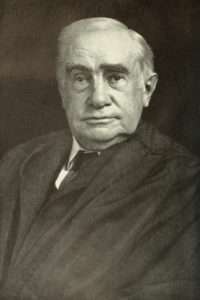The Volokh Conspiracy
Mostly law professors | Sometimes contrarian | Often libertarian | Always independent
Today in Supreme Court History: May 28, 1906
5/28/1906: Justice Henry Billings Brown retired.

Editor's Note: We invite comments and request that they be civil and on-topic. We do not moderate or assume any responsibility for comments, which are owned by the readers who post them. Comments do not represent the views of Reason.com or Reason Foundation. We reserve the right to delete any comment for any reason at any time. Comments may only be edited within 5 minutes of posting. Report abuses.
Please to post comments


Geometry Dash is a fast-paced rhythm-based platformer that challenges players with exciting levels, catchy music, and vibrant visuals. Its simple one-touch gameplay makes it easy to pick up but hard to master, offering a thrilling experience for both casual and hardcore gamers. With custom level creation and a supportive community, Geometry Dash continues to grow as a fun and creative space for players around the world. Visit here https://geometerydashh.com/ for more info.
He is best known for writing Plessy v. Ferguson, a much denounced "separate but equal" opinion. Brown v. Board of Education took another approach.
Justice Souter in his Harvard commencement speech discussed how law develops over time. He noted:
As I’ve said elsewhere, the members of the Court in Plessy remembered the day when human slavery was the law in much of the land. To that generation, the formal equality of an identical railroad car meant progress. But the generation in power in 1954 looked at enforced separation without the revolting background of slavery to make it look unexceptional by contrast. As a consequence, the judges of 1954 found a meaning in segregating the races by law that the majority of their predecessors in 1896 did not see.
https://news.harvard.edu/gazette/story/2010/05/text-of-justice-david-souters-speech/
Brown dissented in the Income Tax Cases. He is not much remembered but perhaps can be seen as a standard judge of his era, including having the biases and perspectives of the time.
delete